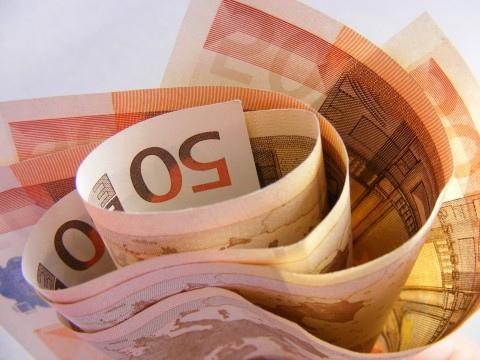Who funded Fine Gael's election campaign?

Fine Gael should publish their corporate donations, argues Martin Ferris
At the end of George Orwell's Animal Farm, there is a scene where the animals who thought they were being liberated discovered that they could no longer tell the difference between the old masters and those who had replaced them. When Micheál Martin stated that it was not credible for us to believe that Lowry and O'Brien met and did not discuss the licence, I could not but recall when the Fianna Fáil front bench wanted us to believe that Cowen and the directors of Anglo Irish Bank, who met for dinner and had played golf in Druids Glen, did not discuss the banking losses.
Fine Gael spoke a lot during the election campaign about political reform and bringing an end to cronyism. It also promised to introduce legislation to ban corporate donations. However, the fact its campaign was funded by a large war chest made up of donations from corporate donors may have been seen as somewhat contradictory and ironic.
Who were the people who funded Fine Gael's election campaign? Among those attending the sponsored Fine Gael golf classics were Treasury Holdings and O'Flynn Construction, both major players in the NAMA debacle. Indeed, Michael O'Flynn was one of those who was consulted, on the establishment of NAMA, to sort out the mess caused by himself and his friends.
The more recent donations prove that nothing much has changed in the 15 year period with which the report deals. If anything, it proves that Fine Gael, like Fianna Fáil, became cleverer at hoovering up cash from corporate donors and at concealing it. The only reason we know the identity of some of those who bankrolled the successful Fine Gael election campaign is that some of them turned up and won prizes at the golf classics but the origin of the majority of the funding is a mystery because it was cleverly concealed.
We know that Fine Gael received at least £110,000 from Denis O'Brien between 1995 and 2000. That does not take into account whatever money went to Deputy Lowry. During the same period, Fianna Fáil received approximately £90,000, and to cover all bets, Denis O'Brien gave approximately the same amount to the Progressive Democrats.
In fairness to a former leader of Fine Gael, the current Minister for Finance, Deputy Michael Noonan, decided in 2001 that Fine Gael would no longer look for or accept corporate donations. That policy was changed by his successor, the current Taoiseach and has obviously been a success, given that Fine Gael had a huge sum of money to spend in the recent election campaign. However, it raises questions with regard to Fine Gael's stated aim to end the culture of corporate donations to political parties.
If Fine Gael intends to use this debate to draw a line in the sand, it should first publish the full list of corporate donations it has received over the past number of years. That might create some confidence among citizens that Fine Gael is genuine about putting an end to the culture of the Galway tent and the cosy dinners and golf classics.
The reason as to why Denis O'Brien funded Fine Gael in the 1990s is clear from the Moriarty report. It is also clear, despite all the denials, that he was well rewarded for his troubles. What exactly do Fine Gael's most recent backers expect from Fine Gael? The EBS, for example, has supported Fine Gael golf classics and is one of the financial institutions that has landed us in the mess we are in. It does not augur well for any Fine Gael Government to carry an IOU for such an entity, not to mention the brass neck of the EBS, which must be saved by the taxpayers, deciding to back one of the horses in the election race. Do the terms of the bailout allow for those rotten financial institutions to embroil the democratic process through the funding of political parties? This is another area the Government should look at as part of its promised reform and putting an end to the cronyism that exists.
With regard to what Fine Gael donors expect from Fine Gael, it is clear from the Moriarty report that Denis O'Brien expected and was given the inside track on the mobile phone licences. Where do people like Denis O'Brien and Fine Gael's latest backers see the main chances now?
I suggest that one of the areas in which they have a high interest is the sell-off of State assets. The Government has already committed to selling off €2 billion of so-called non-strategic assets. The likelihood is that, as in Greece, this will be only the start and that the IMF and European Union will insist on wholesale auction of State companies and assets to service the bank debt. One thing that is certain is that when the Government begins to sell off the family silver, among those at the top of the queue will be the kind of people who have bankrolled Fianna Fáil and Fine Gael.
This is an edited version of Martin Ferris's speech to the Dáil on the Moriarty Tribunal report. The full speech is here.
